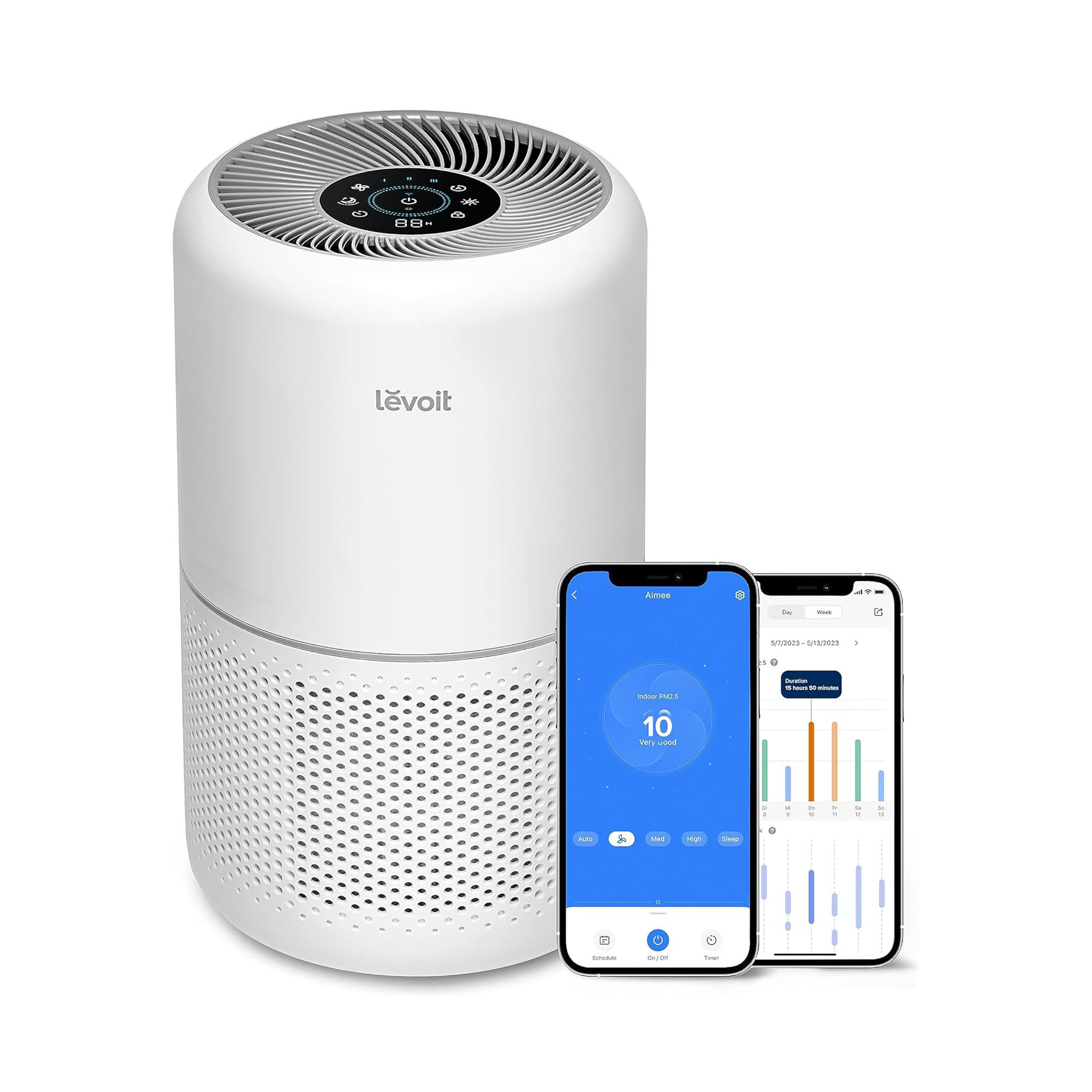Should you have an air purifier on while you're cleaning? Air quality experts say this secret weapon will improve your cleaning routine
You'll need to follow 5 steps to make the most of it, though
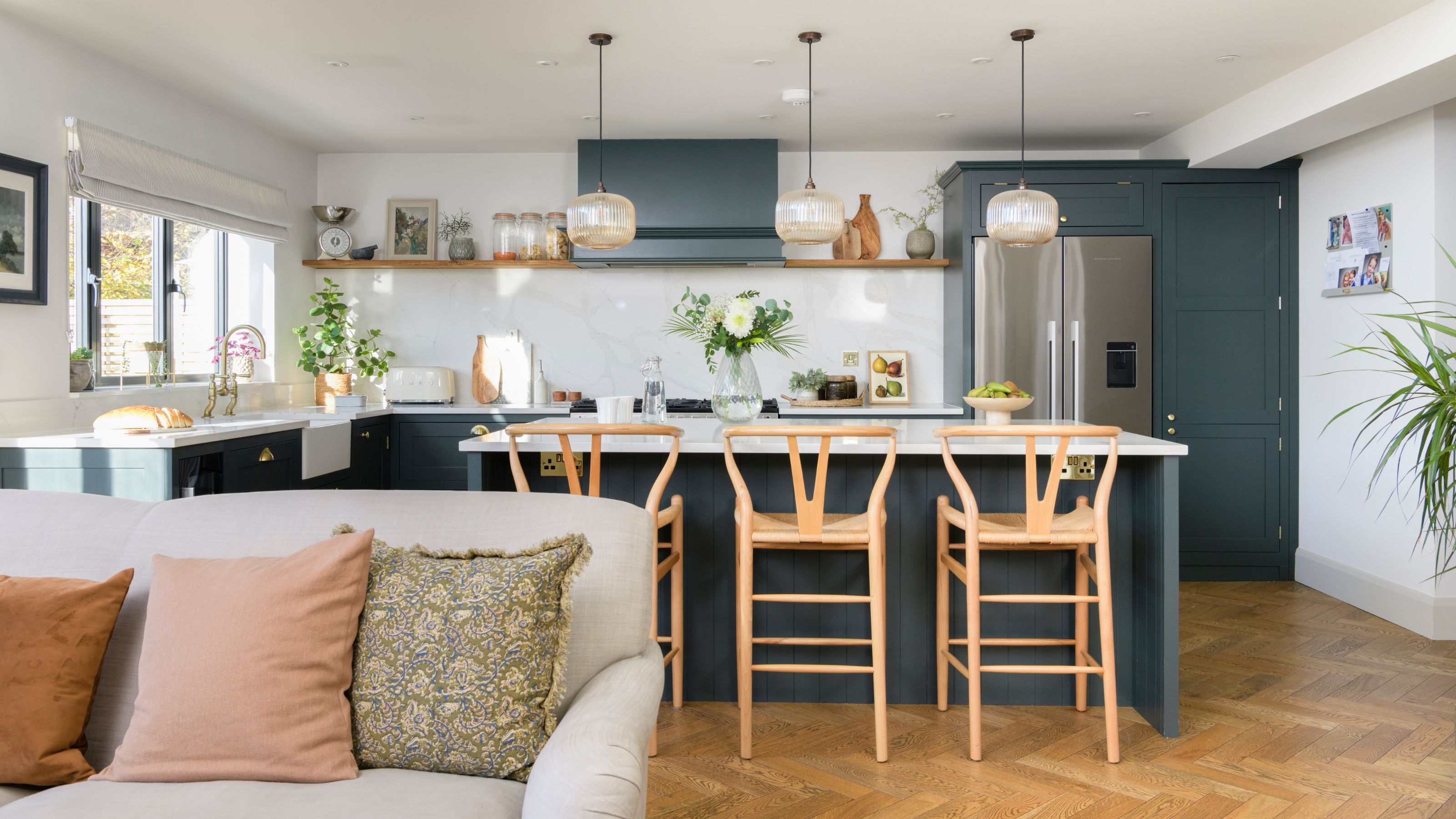
If you own an air purifier, chances are it's quietly working around the clock to keep lingering cooking odours, unwanted dust, allergens, and other airborne pollutants at bay. But should you have an air purifier on while you're cleaning?
There's no doubt that the best air purifiers are a game-changer when it comes to improving the air quality inside our homes. Whether you should leave your air purifier on all the time might be somewhat of a grey area, but there is one thing the experts are clear on - you should leave your air purifier on while cleaning.
'It might seem counter-intuitive, but cleaning can actually stir up more dust and allergens into the air, so it’s a great idea to switch your air purifier on while cleaning,' recommends Roisin Smith, professional cleaner at Wecasa. There are some things to consider, though.
Why you should have your air purifier on while you're cleaning
OK, so you don’t need us to point out that we clean to tackle built-up dust circulating in our homes. But what might not be as obvious is that everyday chores, such as vacuuming, can spread dust, and temporarily make the problem worse.
In fact, cleaning expert Barbara Stern at Ottoman Textiles, explains that many common cleaning tools, such as dry brooms or feather dusters, agitate the dust particles that settle on surfaces. And those dust particles need to go somewhere.
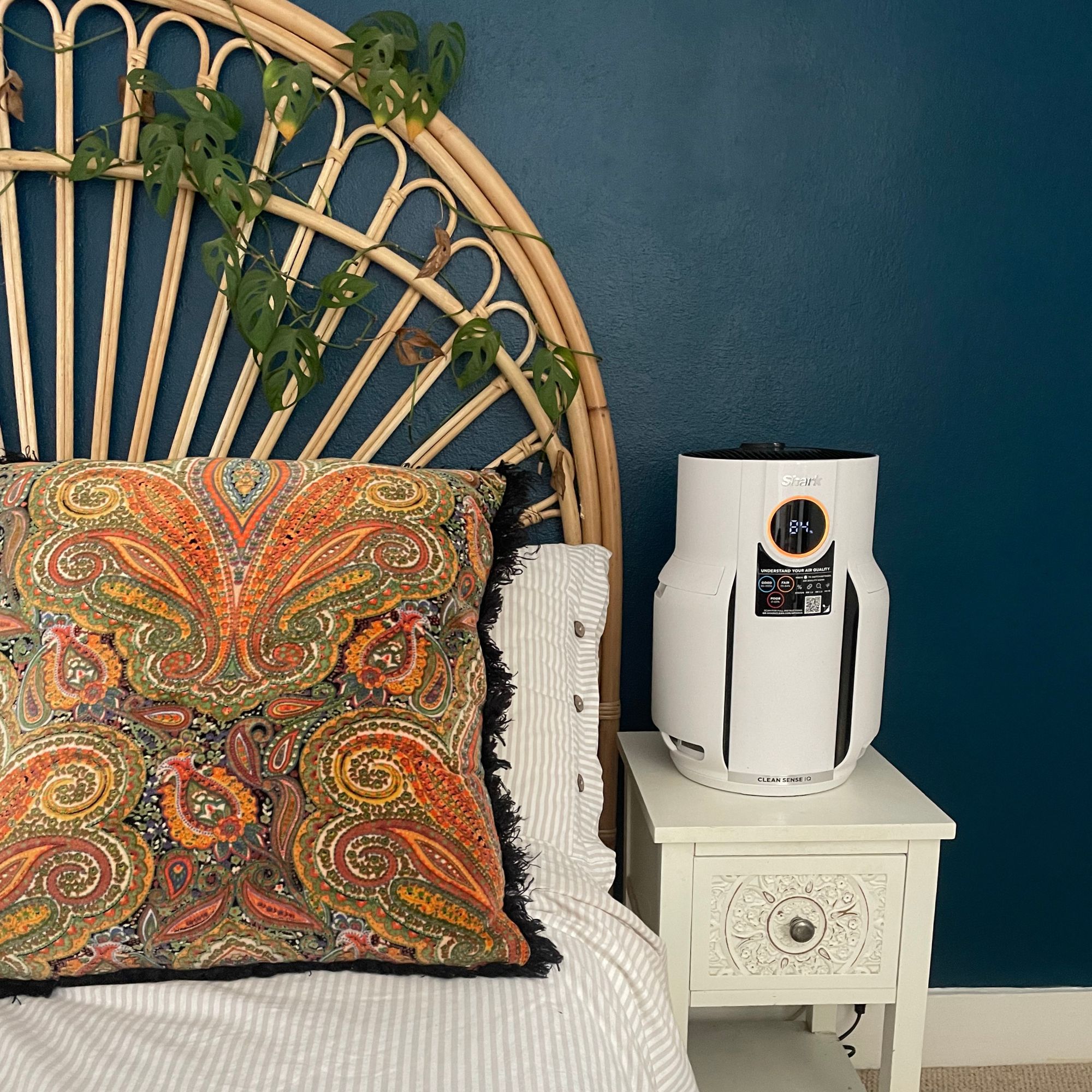
'For example, shaking out a rug sends a cloud of fine particles into the air. These allergens are often less than 10 microns in size and can remain suspended in the air for long periods, which allows them to be inhaled easily,' Barbara says.
This explains why symptoms may worsen during cleaning if you have asthma or allergies. And if you don't pollen-proof your home, this dust can also mingle with pollen and other airborne pollutants, which is why air purifiers are essential for those with allergies.
This is echoed by Chris Michael, Managing Director at Meaco, who says, Lots of people hoover their carpets and clean their surfaces of dust and other particles, but they don't clean the air - which is the source of the dust and dirt they are cleaning. This is where an air purifier comes in.'
But if you want an air purifier to work as effectively as possible while you're cleaning, there are some steps and decisions to consider.

Chris has been advising on humidity solutions and dehumidifiers since 1991 and is well known within the dehumidifier industry across the world as a lead on innovation and sustainability. With a wealth of experience in the industry, Chris is committed to helping provide low-energy and low-noise solutions appliances that improve the lives of customers.
Tips for having your air purifier on while cleaning
1. Choose an air purifier with a HEPA filter
Wondering which air purifier is best for you? When it comes to your cleaning routine, the expert verdict is unanimous - opt for an air purifier with a HEPA filter to see the best results.
'Choose an air purifier with a HEPA filter, which captures 99.97% of particles down to 0.3 microns - this includes dust, pollen, pet dander, bacteria, pollution, etc,' advises Chris.

He's not the only one who says so, either. Katie Lilywhite, air purifier expert at AO.com, also urges everyone to use an air purifier with this enhanced filter. She says, 'If you’re in the market for a new air purifier, then it's important you choose one equipped with a HEPA filter.'
She adds, 'These filters are a godsend for anyone who suffers with allergies, as they trap small particles - drastically improving your indoor air quality.'
2. Ensure the filter is clean before you start cleaning
Before you even reach for your cleaning tools, you should check that your air purifier is operating and the filter isn't clogged up with pet hair or dust.
'This helps to ensure that it removes any pollutants that are disturbed during cleaning', advises Hamid Salimi, residential property manager at Daikin.
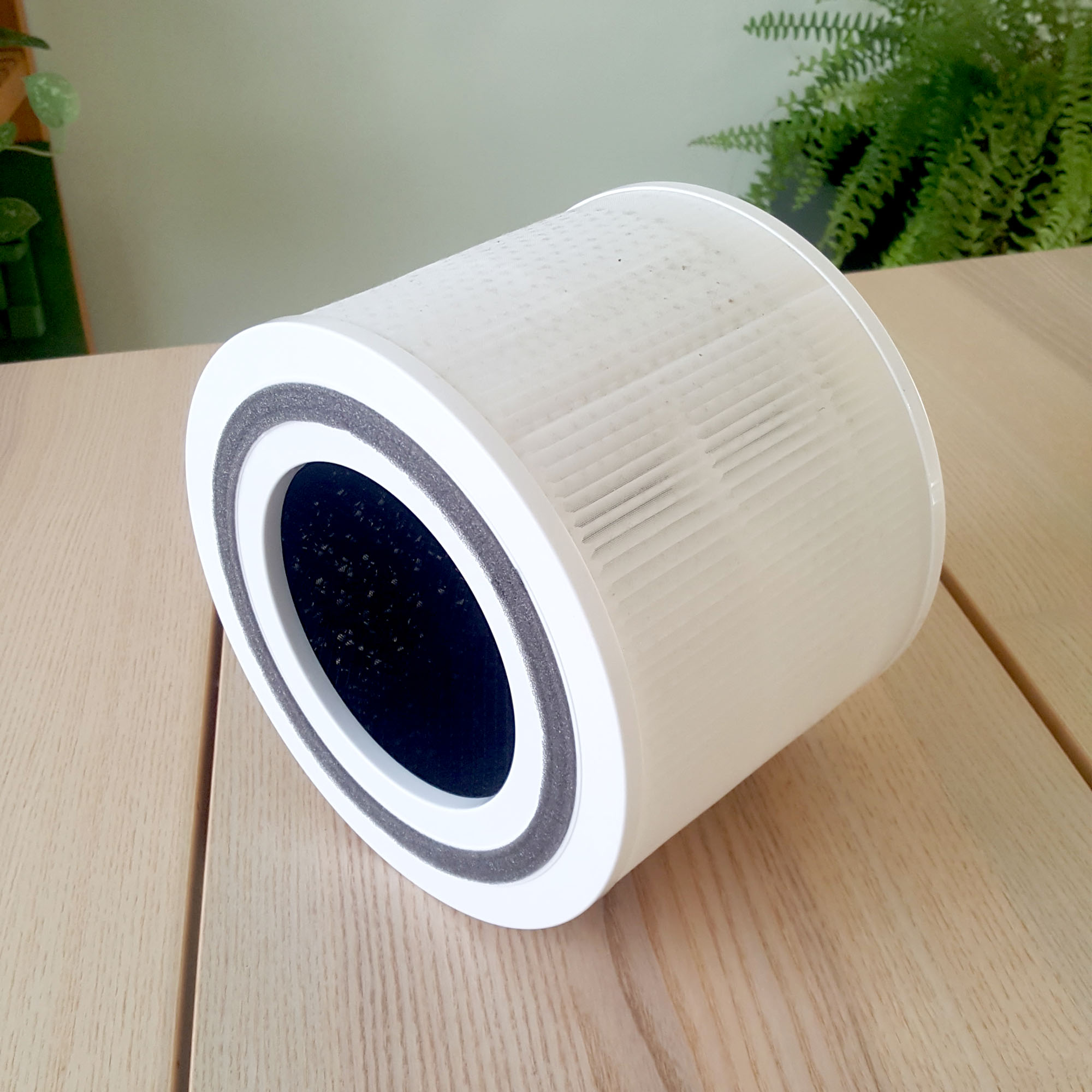
To stay on top of maintenance, the industry pros recommend cleaning the filter at least every two weeks - although if you live in a household with pets or smokers, it's likely you'll need to clean it more frequently.
This shouldn't take too long, but it's important to note that the exact method does vary depending on the brand. For example, cleaning a Dyson filter may be different to cleaning a Blueair air purifier filter.
3. Keep all windows and doors closed
This one might surprise you, but those in the know advise closing your windows and doors while cleaning for your air purifier to work effectively.
To be more specific, Neil Fok, co-founder of EcoAir, says that the key is to open doors and windows in each room before cleaning and then closing them just as you're about to start.
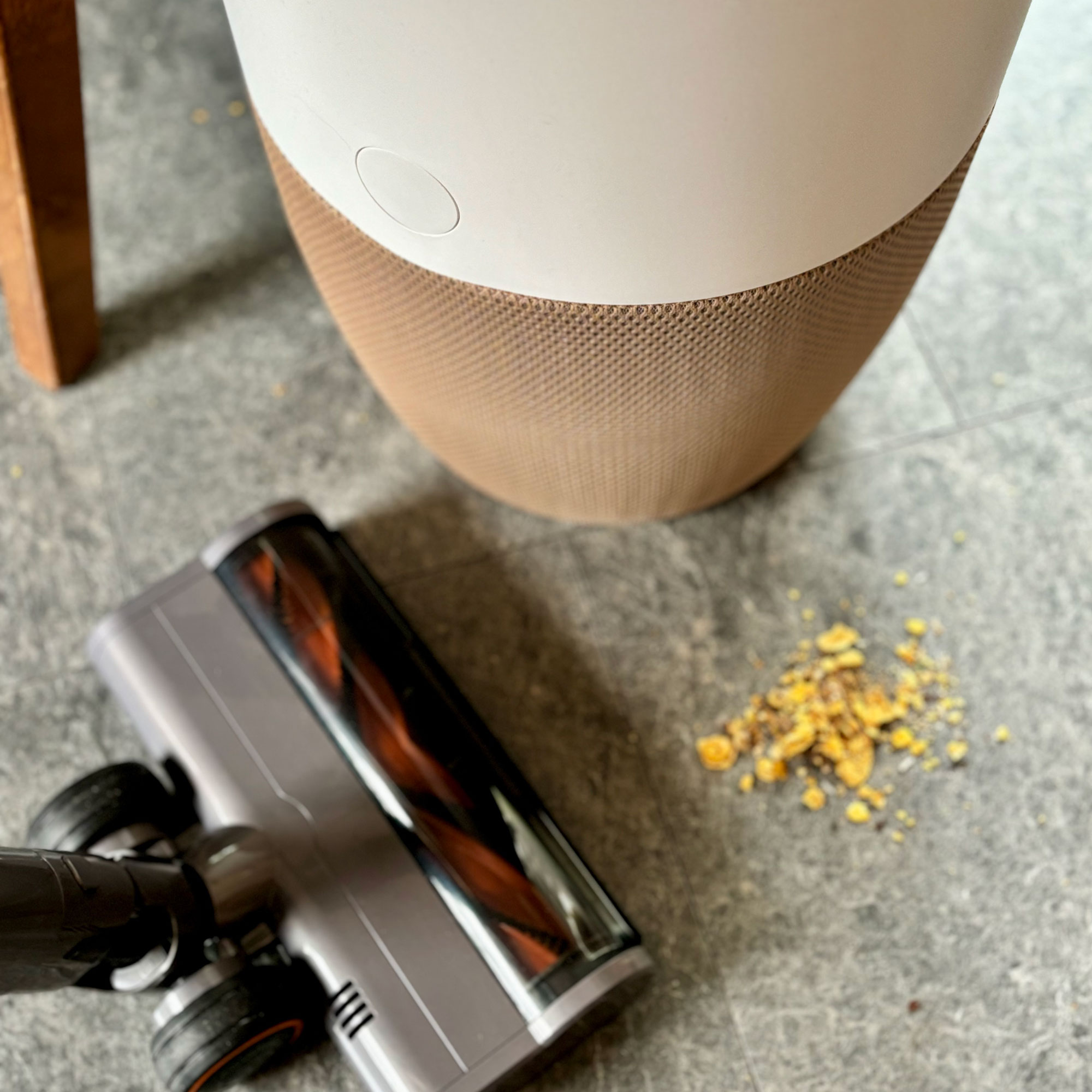
'This will help to ventilate, letting fresh air in and stale air out. Then, when you enter the room to clean it, close the windows so that the air purifier can work on cleansing the air without any potential new pollutants coming into the room,' Neil advises.
Worried about how much your air purifier is costing to run? That's another reason to think twice about cracking open a window while cleaning, says Hamid from Daikin. 'Open windows will also make the unit work harder, reducing its life expectancy as well as increasing energy costs,' he says.
4. Turn your air purifier onto the highest setting while cleaning
While your air purifier works hard to get rid of dust, when you start cleaning, you're unintentionally stirring up a lot of airborne dust and allergens.
'These actions disturb settled particles like pet dander, pollen, and dust mites, which can then float around your home for hours before settling again,' Roisin from Wecasa says.
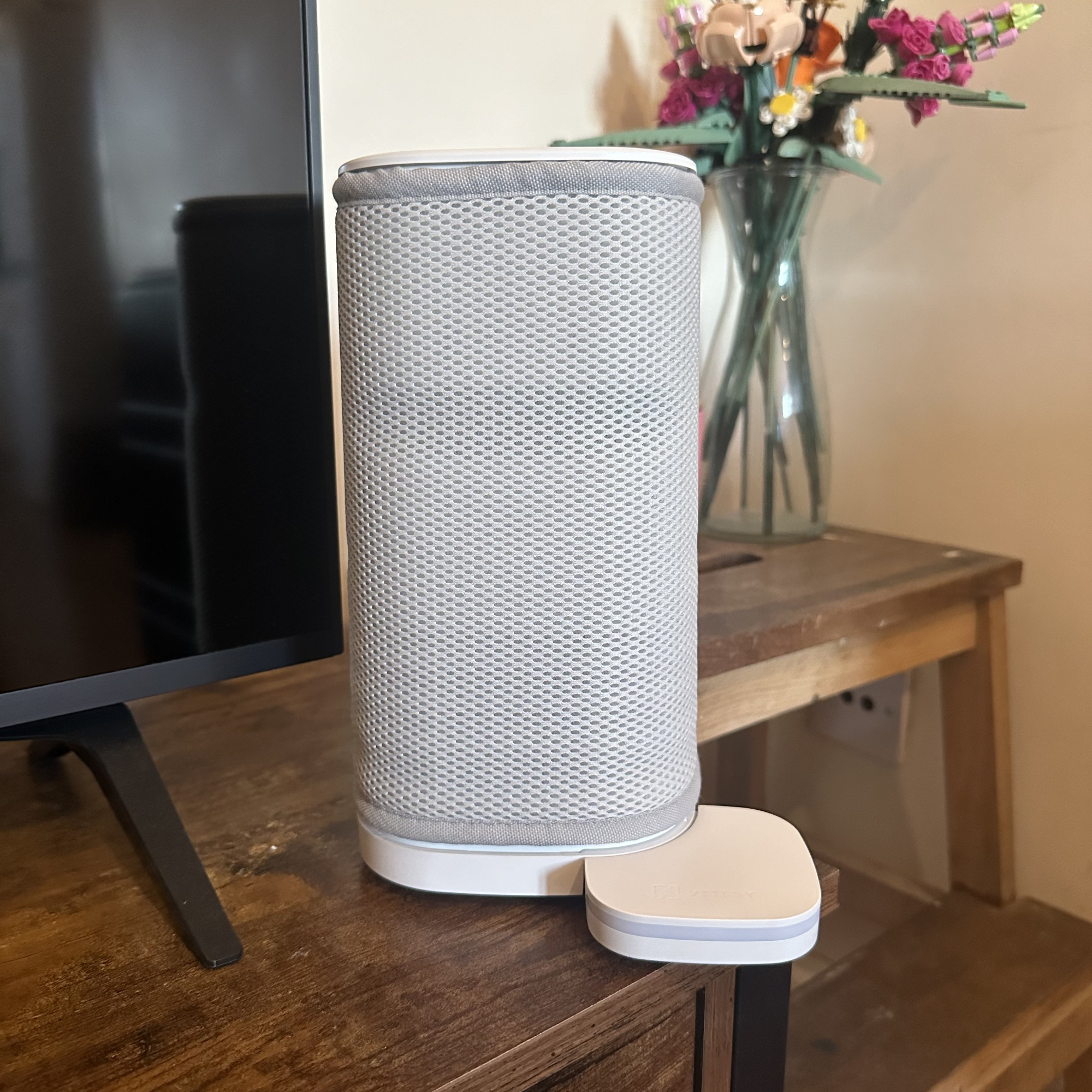
With that in mind, the expert recommendation is to use the highest setting for your air purifier while cleaning. 'You'll unsettle a lot of dust when cleaning, which will make its way into the air. Turning your air purifier on high will remove it from the air faster,' Chris from Meaco adds.
Of course, many modern air purifiers will automatically adjust their functions accordingly, but it's worth keeping an eye out if yours requires a manual setting change.
5. Ditch the duster
Even with your air purifier on while cleaning, you can't completely get rid of dust - but the good news is there is a hack to reduce it.
'Using a damp microfibre cloth instead of a dry duster can help reduce the amount of dust becoming airborne in the first place,' says Roisin (we also really rate this Scrub Daddy Damp Duster from Amazon).
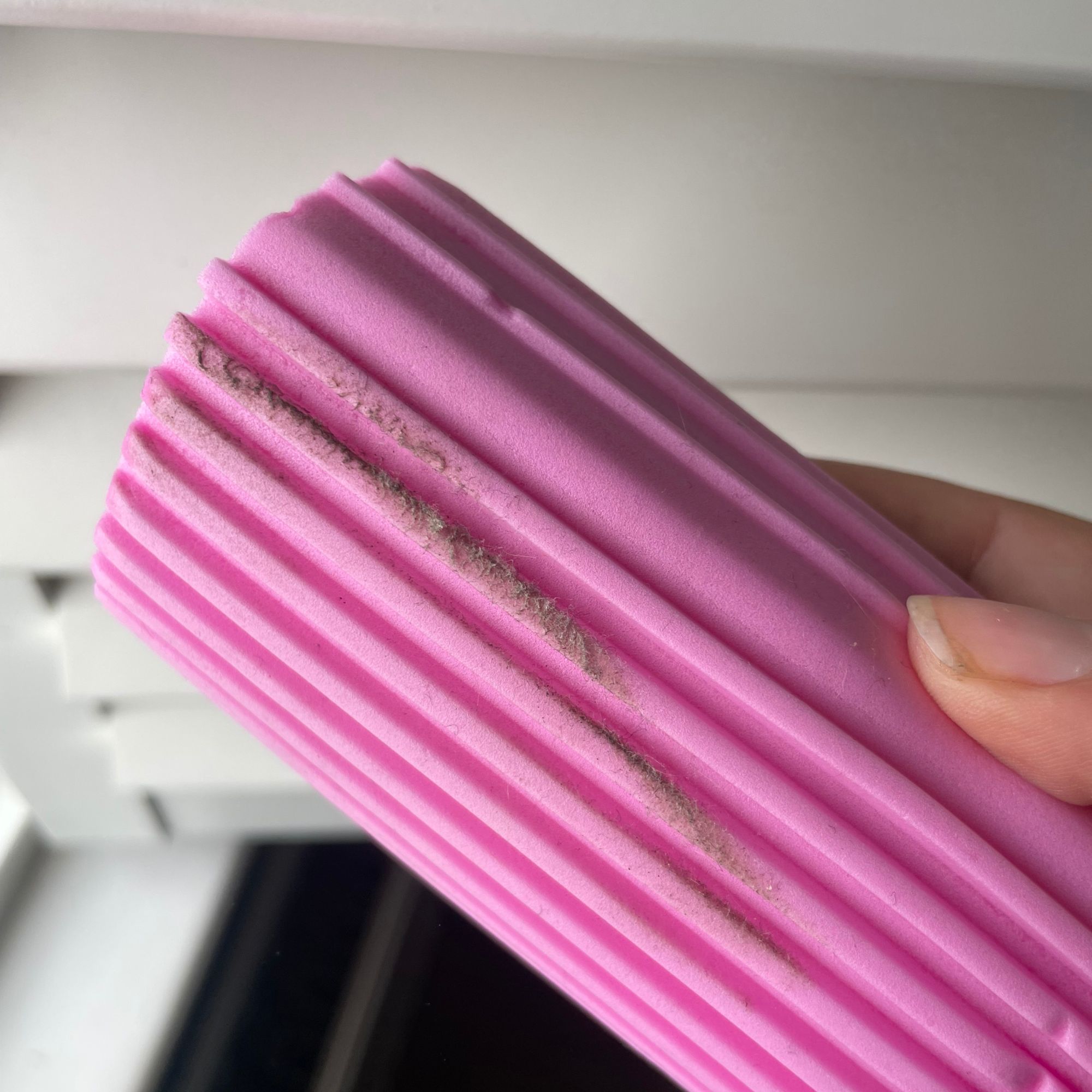
In fact, this is one of the many reasons why the Ideal Home team always chooses wet dusting in the wet dusting vs dry dusting debate, as it's so much easier to capture the dust instead of moving it elsewhere.
Barbara from Ottoman Textiles echoes this advice: 'Spritz a little water or a gentle cleaning solution onto a microfibre cloth instead of directly onto the surface to avoid applying too much moisture, and to aid in dust sticking to the cloth rather than becoming airborne,' she says.
Our pick of air purifiers with HEPA filters
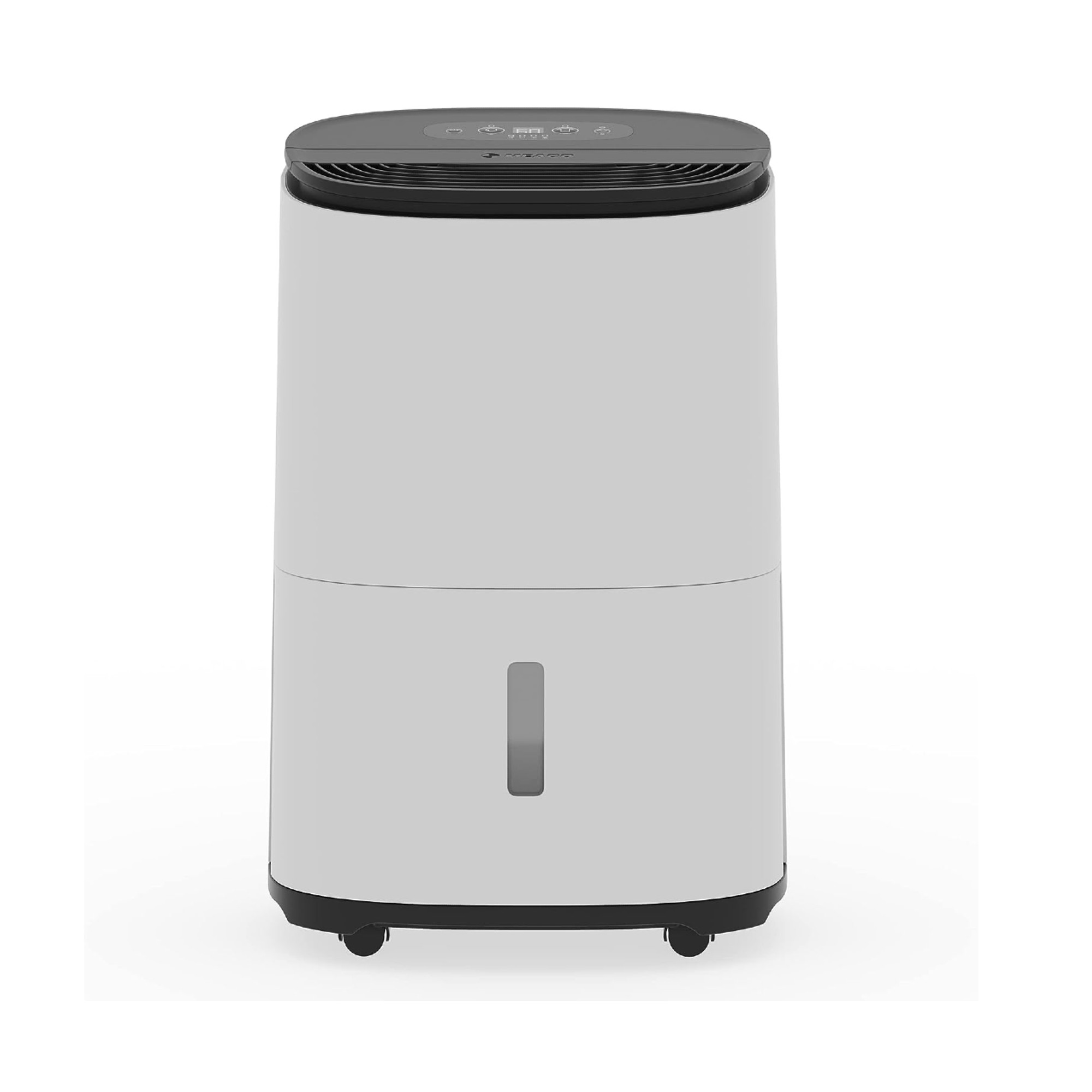
Quiet, energy-efficient, and great for extracting indoor moisture. This air purifier AND dehumidifier also has a built-in HEPA filter to reduce the presence of allergens, moulds, pet dander, and toxins from your home. We also gave it a glowing 4.5-star review.
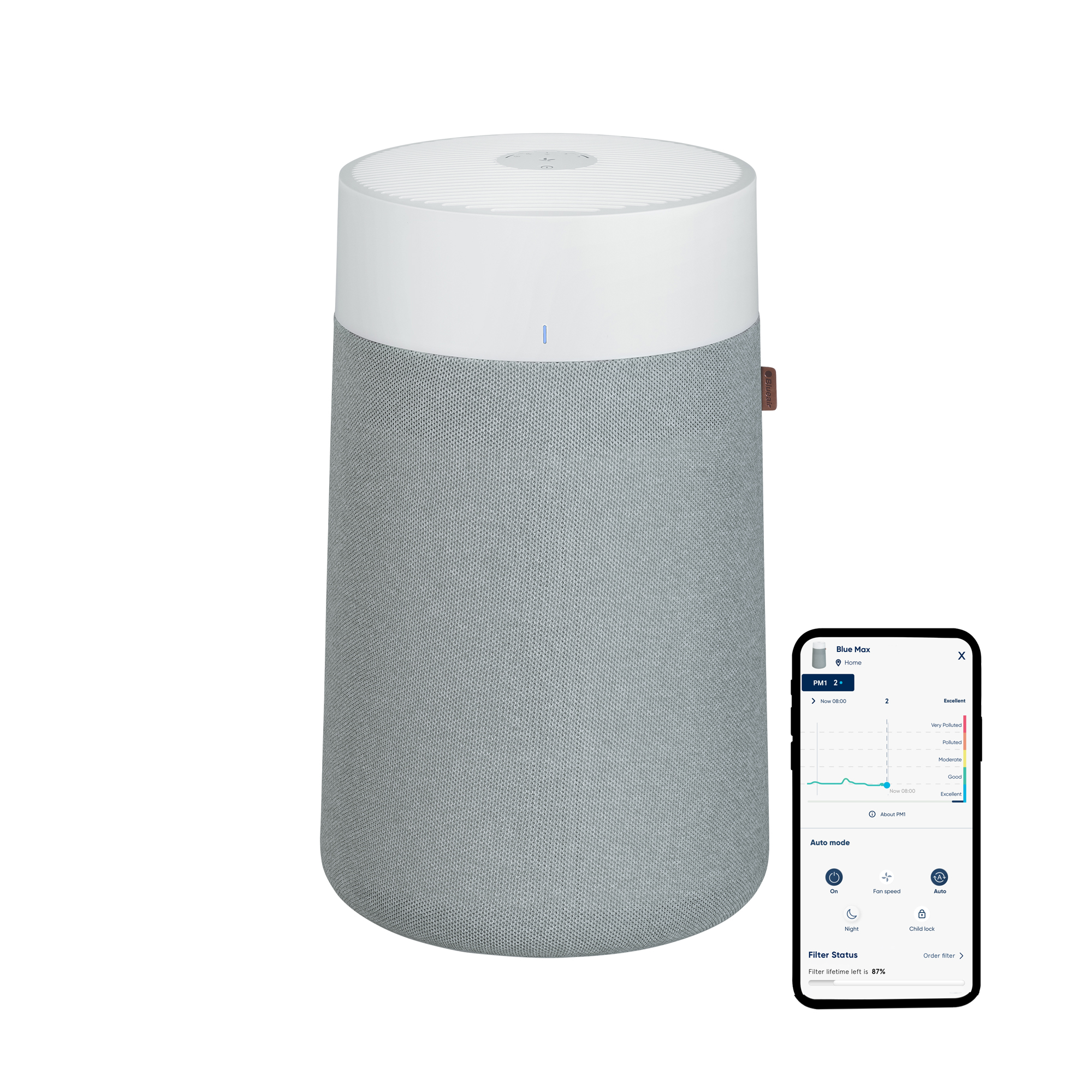
Crowned best overall air purifier in our guide, this model filters out 99.97% of airborne particles down to 0.1 microns in size - impressive considering most air purifiers filter down to 0.3 microns. It also has a bonus auto mode, meaning it can automatically turn on with fluctuating air quality.
FAQS
Should I leave my air purifier on when I'm not home?
The general consensus is clear - to keep your air as clean as possible, it's best to leave your air purifier on, even when you're not at home.
'Leaving your air purifier on is perfectly safe and a practical thing to do even when you’re not at home. This will keep the indoor air quality consistent throughout the day, which means you’ll have less fuss to deal with when you return home,' says Katie Lilywhite from AO.com.
Worried about the cost of running an air purifier all day? Luckily, the majority of units are pretty cheap to run, but you can still reap the benefits if it's not switched on 24/7, says Neil Fok from EcoAir.
'If you are concerned about energy usage, you can operate the appliance on a lower setting whilst you are out of the house. If you live in a home where dust or allergens are not too problematic, you can run an air purifier for 12 hours a day with effective results,' he says.
Is there a downside to air purifiers?
By now, we're well aware of the benefits they bring to the table, but if you're still wondering if air purifiers are worth it, like most things, they come with some considerations.
Although air purifiers improve indoor air quality, excessive use can reduce humidity levels, drying out the air.
'This can cause dry skin, irritated sinuses, and breathing discomfort,' says Hamid Salimi from Daikin. 'This can be mitigated by not using it excessively, or opt for an air purifier that also humidifies.'
It's also worth noting that while most air purifiers use HEPA filters, some offer more powerful purification using UV light, ozone or ionisation to clean the air - which can produce harmful byproducts, warns Neil Fok, Ecoair.
'When purchasing an air purifier, be sure to check the quality of the product and its safety credentials to ensure your appliance is not emitting or leaking any dangerous chemicals or pollutants,' Neil advises.
That said, there's no denying air purifiers are great solution for improved indoor air quality in your home - especially if you suffer from allergies or respiratory issues. Like most investments, it comes down to what works for you personally.
So, now you know whether you should have an air purifier on while you're cleaning, it's time to get the vacuum out and turn your air purifier on!
Get the Ideal Home Newsletter
Sign up to our newsletter for style and decor inspiration, house makeovers, project advice and more.
You must confirm your public display name before commenting
Please logout and then login again, you will then be prompted to enter your display name.
-
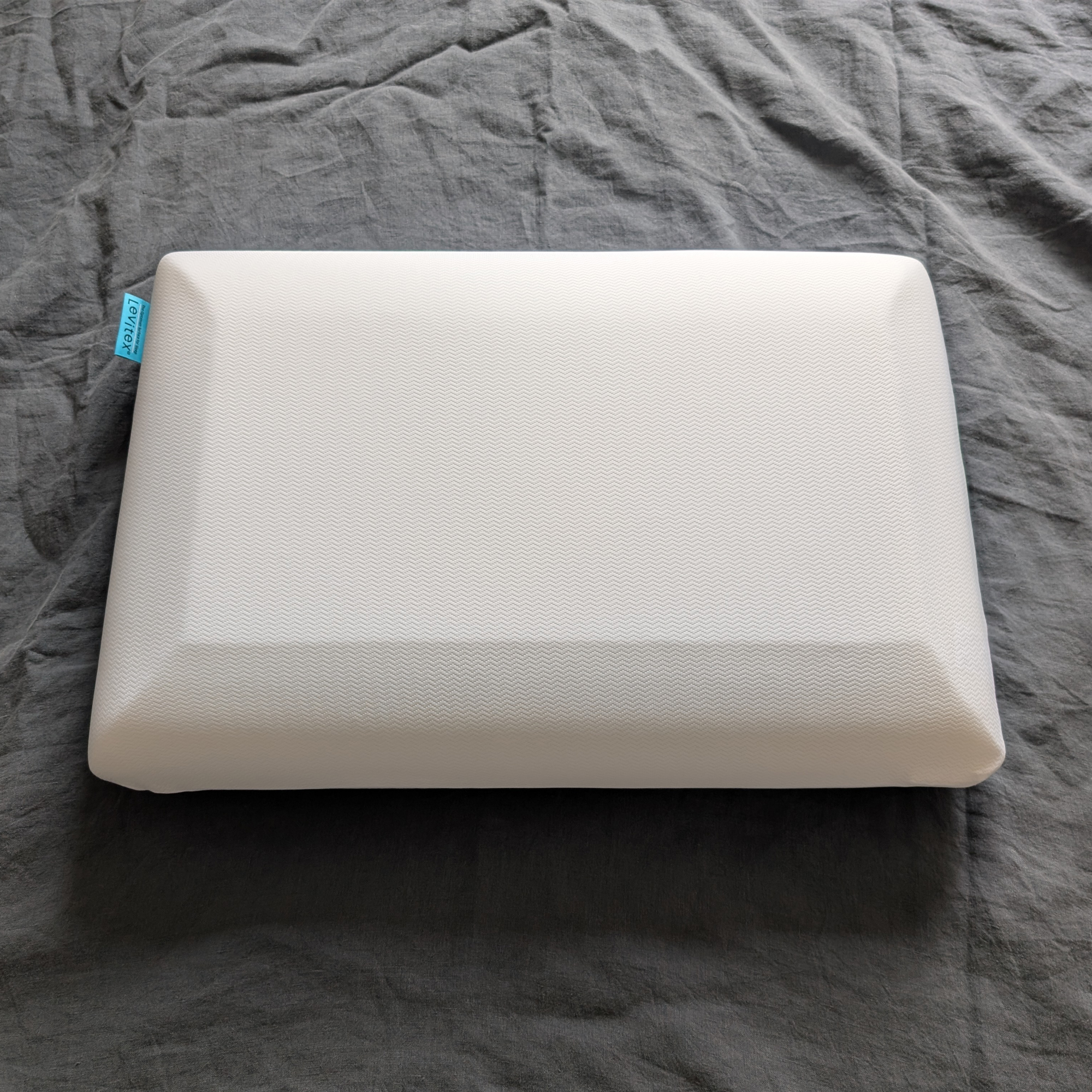 The Levitex Sleep Posture Pillow is so good, it just converted me from a front sleeper into a side sleeper – if you lie on your side at night, this is the pillow for you
The Levitex Sleep Posture Pillow is so good, it just converted me from a front sleeper into a side sleeper – if you lie on your side at night, this is the pillow for youI tried the Levitex Sleep Posture Pillow for a month, and I’m never looking back
By Amy Lockwood
-
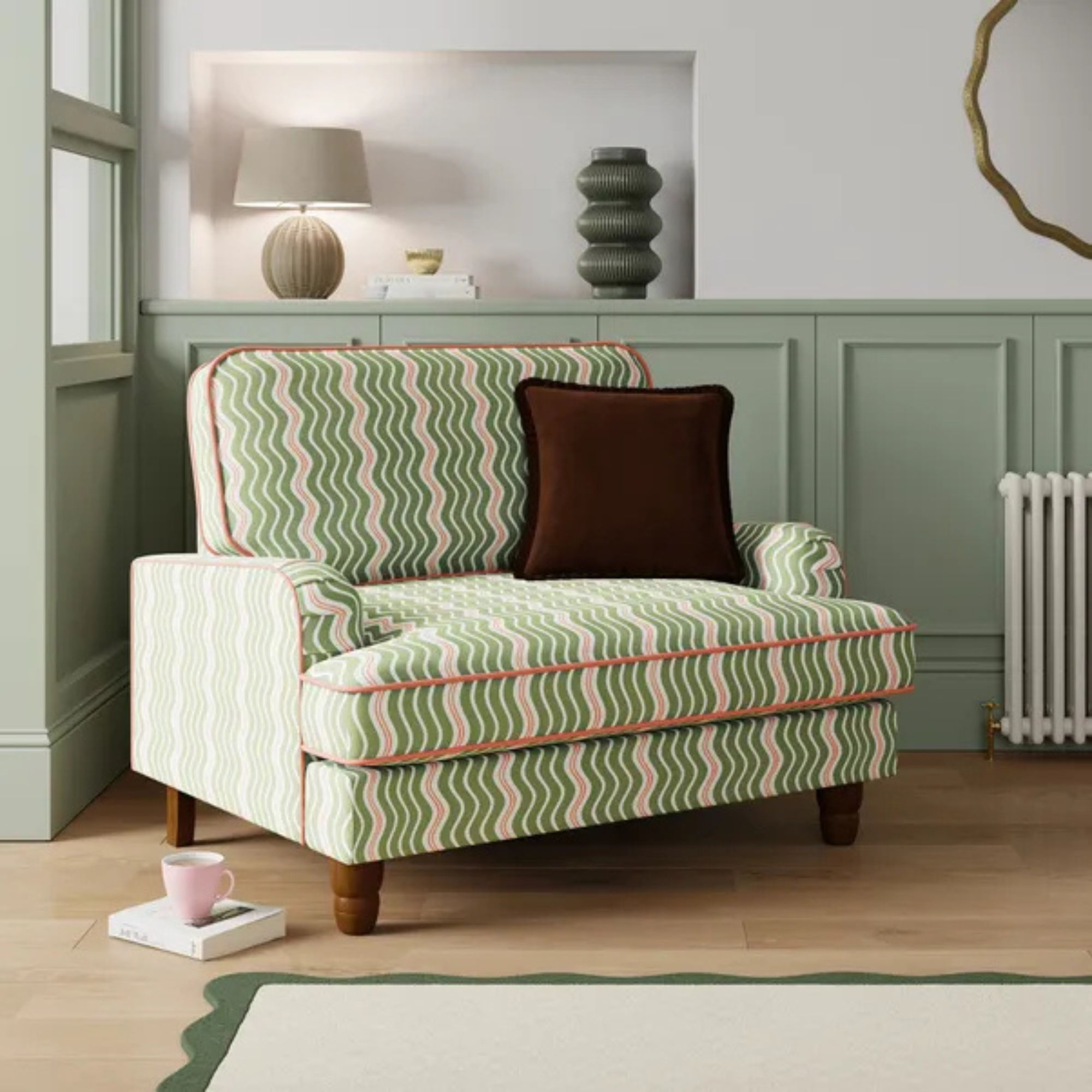 Dunelm has given its cult snuggle chair a new look - it's swapped classic stripes for another emerging pattern trend
Dunelm has given its cult snuggle chair a new look - it's swapped classic stripes for another emerging pattern trendI'm obsessed with this fresh new style
By Kezia Reynolds
-
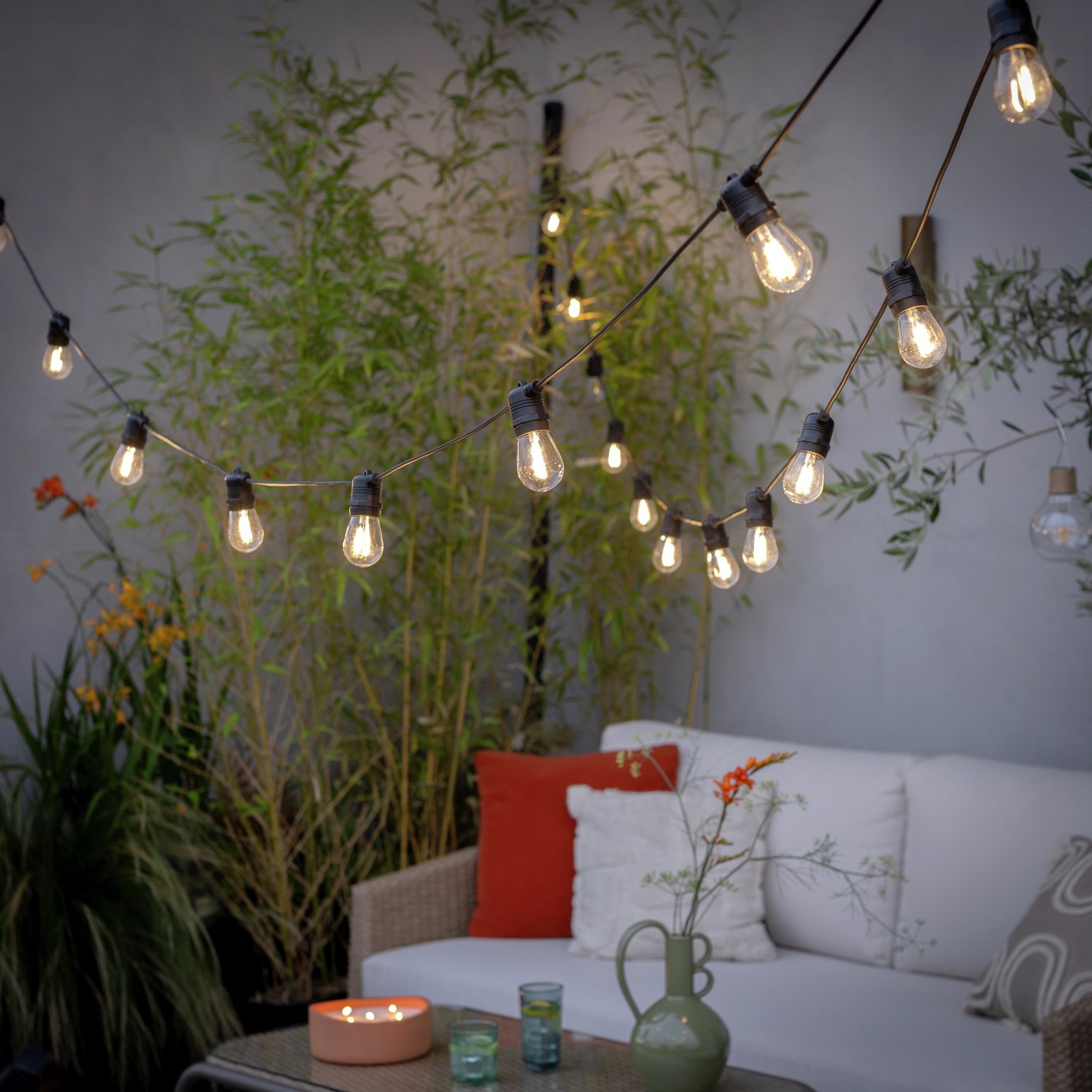 The 6 outdoor lights from Habitat that I'm choosing between to make my outdoor space look more expensive this summer
The 6 outdoor lights from Habitat that I'm choosing between to make my outdoor space look more expensive this summerI couldn’t believe some of the prices
By Ellis Cochrane
